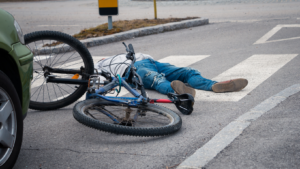What Is a Duty of Care?
A Duty of Care is the obligation to act with care and prudence toward others and the public, as a reasonable person would in similar circumstances. Failure to meet this standard may lead to negligence claims and subsequent damages. This concept is fundamental in various fields, including law, medicine, and business, where individuals or professionals are expected to act in a way that prevents foreseeable harm to others. Essentially, it mandates that one must exercise caution and consideration to avoid causing harm or injury to others.
According to the ruling in Donoghue v Stevenson (1932), “You must take reasonable care to avoid acts or omissions which you can reasonably foresee would be likely to injure your neighbor.” This principle has since become a cornerstone in tort law, influencing how negligence cases are determined.
In practice, duty of care requires individuals to anticipate risks that their actions or inactions might pose to others and take reasonable steps to mitigate those risks. For instance, in healthcare, doctors owe a duty of care to their patients to provide treatment that meets accepted medical standards, ensuring patient safety and well-being. Understanding the duty of care helps ensure that individuals and organizations prioritize the well-being of others, thereby reducing the occurrence of preventable harm.
More information about Duty of Care
Pittsburgh Driver Error Accident Lawyer
Located at the heart of Pittsburgh, the city where three rivers meet, our expert team at Munley Law Personal Injury Attorneys proudly serves residents of the Steel City and its surrounding communities. Pittsburgh is known for its vibrant neighborhoods, iconic bridges, and for being a hub of technological innovation, but we also understand the challenges that come with navigating its bustling streets.
Each year, numerous car accidents due to driver error occur on Pittsburgh’s busy roads, from the winding byways of Squirrel Hill to the bustling intersections of Downtown and even on the parkways during the heavy rush hours. Our experienced Pittsburgh car accident lawyers are here to provide you with dedicated, knowledgeable legal representation, helping you navigate the complexities of the law, and secure the compensation you deserve.
What is a Pittsburgh Driver Error Accident Lawyer? 
Our Pittsburgh car accident lawyers specialize in handling motor vehicle accident cases stemming from driver errors. […]
Read MoreMore information about Duty of Care
Pittsburgh Hit and Run Car Accident Lawyer
If you’ve been Involved in a Pittsburgh hit and run accident, the expert car accident lawyers at Munley Law are here for you. Contact us for a free consultation today.
Pittsburgh is often rated one of the best places to live in Pennsylvania. It offers a mix of both urban and suburban amenities, quality schools, and is often considered a safe and all around nice place to live. Even still, hit and run accidents can happen anywhere; Pittsburgh is no exception.
If you or a loved one was involved in a hit and run accident, you don’t have to navigate the aftermath alone. A hit and run lawyer can help you and your family recover the compensation you deserve to start moving forward.
What is a Hit and Run Accident? 
A hit and run accident generally occurs when the at fault driver leaves the scene of an accident. […]
Read MoreMore information about Duty of Care
Can You Sue For Wrongful Death In A Motorcycle Accident Claim?
Are you wondering if you can sue for wrongful death in a motorcycle accident claim? Losing a loved one in a tragic accident is devastating, and seeking justice for their untimely death is an important step towards closure.
In this article, our motorcycle accident lawyers will explore the possibilities of filing a wrongful death claim in the context of a motorcycle accident.
When it comes to wrongful death claims in motorcycle accidents, understanding the legal process is crucial. To successfully sue for wrongful death, you will need to establish negligence on the part of the responsible party. This means proving that their actions or lack of action directly caused the accident and subsequent death.
It may involve gathering evidence such as witness testimonies, accident reports, and expert opinions to build a strong case. Additionally, each state has its own set of laws and statutes of limitations that govern wrongful death claims. […]
Read MoreMore information about Duty of Care
Drowning Accident Lawyer
If Someone You Love Drowned in a Tragic Accident, Munley Law Personal Injury Attorneys Can Help.
Swimming pools are great fun and can be a relief on hot summer days. But what many families fail to realize is just how dangerous a swimming pool can be. For more than 60 years, Munley Law Personal Injury Attorneys has helped victims of unintentional drowning and their family members. Let us help you get the justice you deserve for your loss.
Understanding drowning laws and pool owners’ responsibilities is key for drowning accident lawyers. Our premises liability attorneys are experts in the laws that apply to drowning accidents. We provide FREE consultations and are ready to discuss your or your loved one’s drowning accident. Call our drowning accident attorneys today, chat with us, or use our online contact form.
How Often Do Drowning Accidents Occur? […]
Read MoreMore information about Duty of Care
How Long After a Car Accident Can You Sue in Pittsburgh?
Navigating the aftermath of a car accident can be overwhelming, especially when it comes to understanding your legal rights. You may be considering legal action but are unsure of the timeline to pursue a lawsuit. In Pennsylvania, specific laws define this period, known as the statute of limitations. Understanding this time constraint is crucial as it determines your ability to seek justice and potentially receive compensation. This article will guide you through the ins and outs of the statute of limitations for car accidents in Pittsburgh.
If you are involved in a car accident in Pittsburgh, your first action should be to contact a Pittsburgh car accident lawyer as soon as possible. Munley Law can help you with your claim and get you the compensation you deserve.
Negligence, Duty of Care, and Liability in Car Accidents
To understand car accident lawsuits, you need to know a few key terms: negligence, […]
Read More









